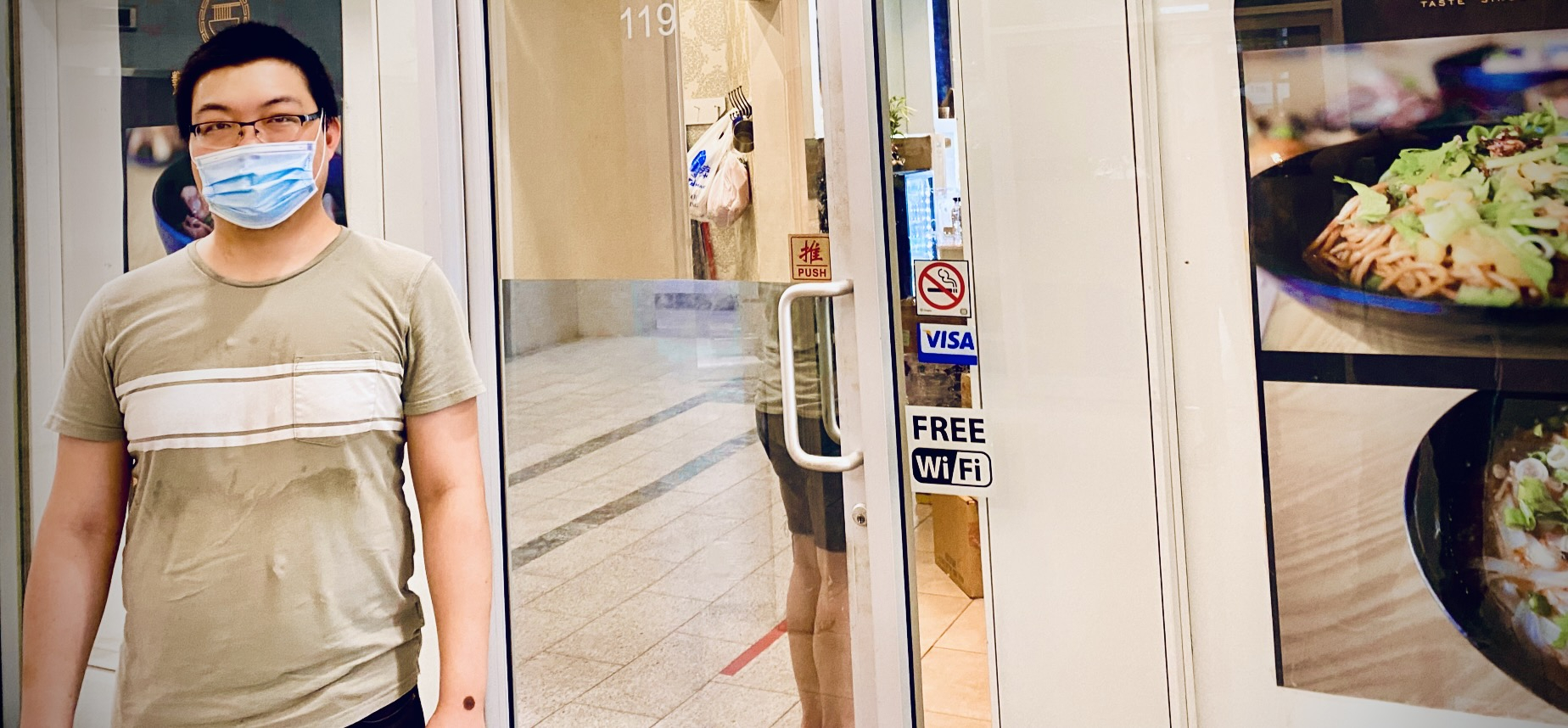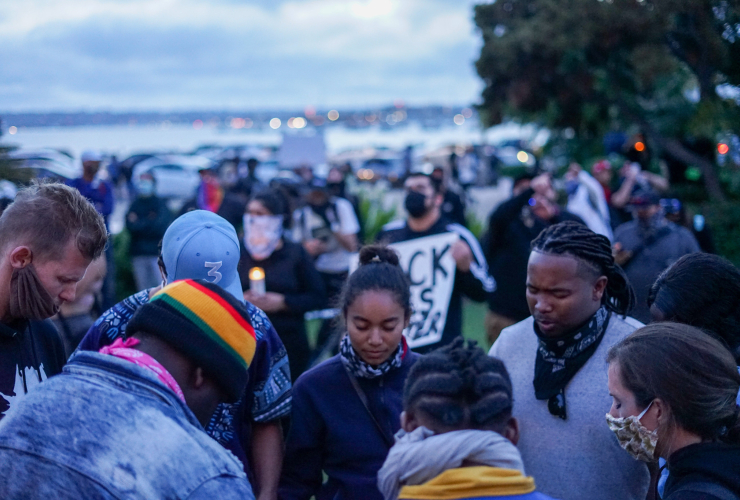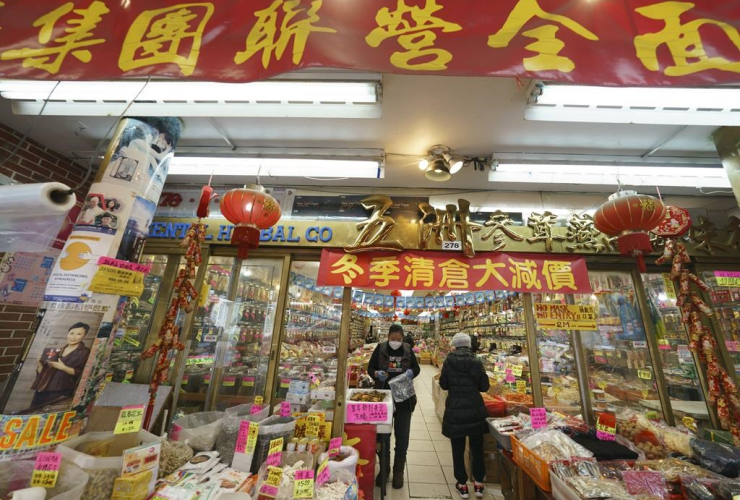"Hi! Do your noodles carry the coronavirus?" "No! Our food doesn't have any virus!"
That was the phone call Zhengyu Fang, manager of Wuhan Noodle 1950 in Markham, Ont., received back in January 2020. Fang remembers answering those types of phone calls 10 to 20 times every day.
The World Health Organization declared the COVID-19 pandemic on March 11, 2020. But before that, Fang had already experienced months of prank phone calls and racist comments on social media just because his restaurant's name is connected with Wuhan, China, where the virus had flourished earlier.
"In a Google review, someone even said that they ordered a bat soup from us and got infected," said Fang, "but Google has since removed that comment."
He said they lost two-thirds of their business during that time.
As more and more people get vaccinated, and while there is some optimism the pandemic may eventually become an endemic, like many other business managers, Fang hopes his restaurant business can go back to normal once COVID-19 is gone.
But like the pandemic itself, it will not be the same for everyone. Asian-owned businesses have had to fight two foes: racism and the COVID lockdowns.
"Asian businesses are battling the pandemic on two fronts," Mary Ng, federal minister of small business, export promotion and international trade, said in a recent phone interview.
"When I think about the statistics that I've seen, and the reports that we are getting where anti-Asian racism is on the rise and hate crimes increase in very alarming numbers, it's very disheartening."
A CIBC online study conducted in April 2020 found 81 per cent of Canadian small business owners reported COVID-19 has negatively impacted their operations, while 32 per cent worried about the viability of their businesses during the subsequent next year. The majority (85 per cent) agreed the uncertainty of how long COVID-19 measures will last was the most challenging aspect to manage.
And it appears the situation could be even more dire for Asian-owned businesses trying to win back fearful customers.
A report from Statistics Canada released in July 2020 suggested Canadians with Asian backgrounds “perceived an increase in the frequency of harassment or attacks based on race” compared to the rest of the population.
According to the Vancouver Police Department report, that city experienced an increase in anti-Asian hate of over 700 percent from 2019 (12 crimes) to 2020 (98 crimes).
Similarly in Ottawa, the Ottawa Police Service reported that hate crimes overall went up by 57 percent in 2020. Hate crimes against East Asian and Southeast Asian people increased from two in 2019 to 14 in 2020. Though these numbers are small, the increase was 600 per cent.
Research from Toronto shows that after Vancouver, Toronto has the second-highest number of cases involving anti-Asian hate crimes.
For many in Toronto's Asian community, the treatment Chinese Canadians are experiencing is reminiscent of the 2003 SARS virus outbreak.
Peter Y. I. Chen, chair of the Ontario Chinese Restaurant and Food Service Association who had a restaurant in Chinatown for over 30 years, said he still tears up when thinking about the SARS outbreak and the discrimination Chinese business owners suffered.
"The contrast at the time of SARS was very obvious," said Chen. "There was no one in the Chinese restaurants, but there were lines at the entrances of other restaurants."
When SARS hit 19 years ago, businesses in Toronto's Chinatown and in the Pacific Mall in Markham, Ont., reported traffic decreases between 70 per cent and 90 per cent after the outbreak began in mid-March 2003.
History was repeated when COVID-19 surfaced at the beginning of 2020.
"No one came to eat for a while at that time," said Wai Ling Choo, the manager of Taste of China Seafood Restaurant in Chinatown, a time-honoured eatery that has been there for over two decades. "And Chinatown looked like it was under martial law. No people were walking on the street."
Choo said because of the fame of the restaurant, more than half of its clientele are non-Chinese. But after the pandemic was first reported in China, people stopped coming because of fear of getting coronavirus from Chinatown.
"Our restaurant specializes in late-night dining," said Choo. "We used to be full of customers every night before the pandemic, but suddenly there was no one coming."
But, ironically, the Chinese are very aware of the spread of diseases. They stayed at home and they were the first ones to wear masks in Canada.
As an example, Tonny Louie, chair of the Toronto Chinatown Business Improvement Area, recalled what happened at the 2020 Chinese New Year celebration show, where Chinese people gather in Chinatown to watch performances. Attendance started well on the first day, but on the second day of the celebration — Jan. 27, 2020 — the first COVID-19 case was reported at Sunnybrook hospital in Toronto, and Louie said attendance decreased immediately.
The pandemic has forced businesses worldwide to shut their doors, and pandemic-related closures and restrictions on indoor gatherings were particularly hard on the restaurants, retail stores and other service industries in which many Asian-owned firms are concentrated.
Kay Matthews, executive director of the Ontario Business Improvement Area Association, said she is not sure if it will be back to normal for a long time, especially for those small businesses that have taken out government loans.
"The loans have just meant that they now owe money on top of the money that they're not receiving," said Matthews. "So I suspect it will probably take years for them to come back out of this financially. Businesses may look normal, but I think the impacts financially are going to be very challenging for them for years to come."







Comments